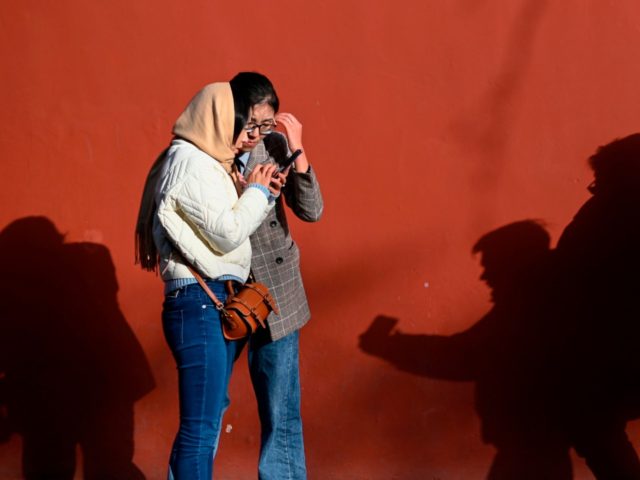New legislation in China requiring telecom operators to collect face scans of their new phone users came into effect on Sunday.
The regulation, which passed as legislation in September, will supposedly help “protect the legitimate rights and interests of citizens in cyberspace,” the country’s Ministry for Industry and Information Technology said.
The statement added that “artificial intelligence and other technical methods” should be employed to match the faces of customers buying new SIM cards with their identity documents.
“In the next steps, our ministry will continue to increase supervision and inspection and strictly promote the management of real-name registration for phone users,” they said at the time.
The policy is part of an effort by the communist regime to reduce people’s ability to stay anonymous on the internet and a broader push at stepping up the country’s mass surveillance program. Under the lapsing rules, customers applying for new phone numbers need to show their national ID card and have their photos taken, not submit to a face scan.
The move to utilize artificial intelligence also comes as the communist regime expands the use of facial recognition technology, using it for everything from supermarket checkouts to public transport. Jeffrey Ding, a researcher on Chinese artificial intelligence at Oxford University, told the BBC that although China does intend to use the technology to boost cyber-security and reduce internet fraud, the principal intention is to monitor the population.
“It’s connected to a very centralized push to try to keep tabs on everyone, or that’s at least the ambition,” he explained.
China has faced pushback over the technology. Last year, a university professor sued a wildlife park for enforcing compulsory facial recognition on its visitors, sparking a wider debate about the extent to which authorities planned to roll out the technology.
In his lawsuit, Professor Guo Bing accused the Hangzhou Safari Park of “violating consumer protection law by compulsorily collecting visitors’ individual characteristics.” Although the park did not remove the technology, they eventually agreed to offer customers a choice between using the original fingerprint system or facial recognition.
China is widely regarded as a surveillance state. In 2017, it had 170 million CCTV cameras in place across the country with the goal of installing an estimated 400 million new ones by 2020. Communist authorities are also developing their “social credit” system to keep data on the conduct and behavior of its citizens in a nationwide database, with different rewards and punishments for people based on their ranking.
Follow Ben Kew on Facebook, Twitter at @ben_kew, or email him at bkew@breitbart.com.

COMMENTS
Please let us know if you're having issues with commenting.